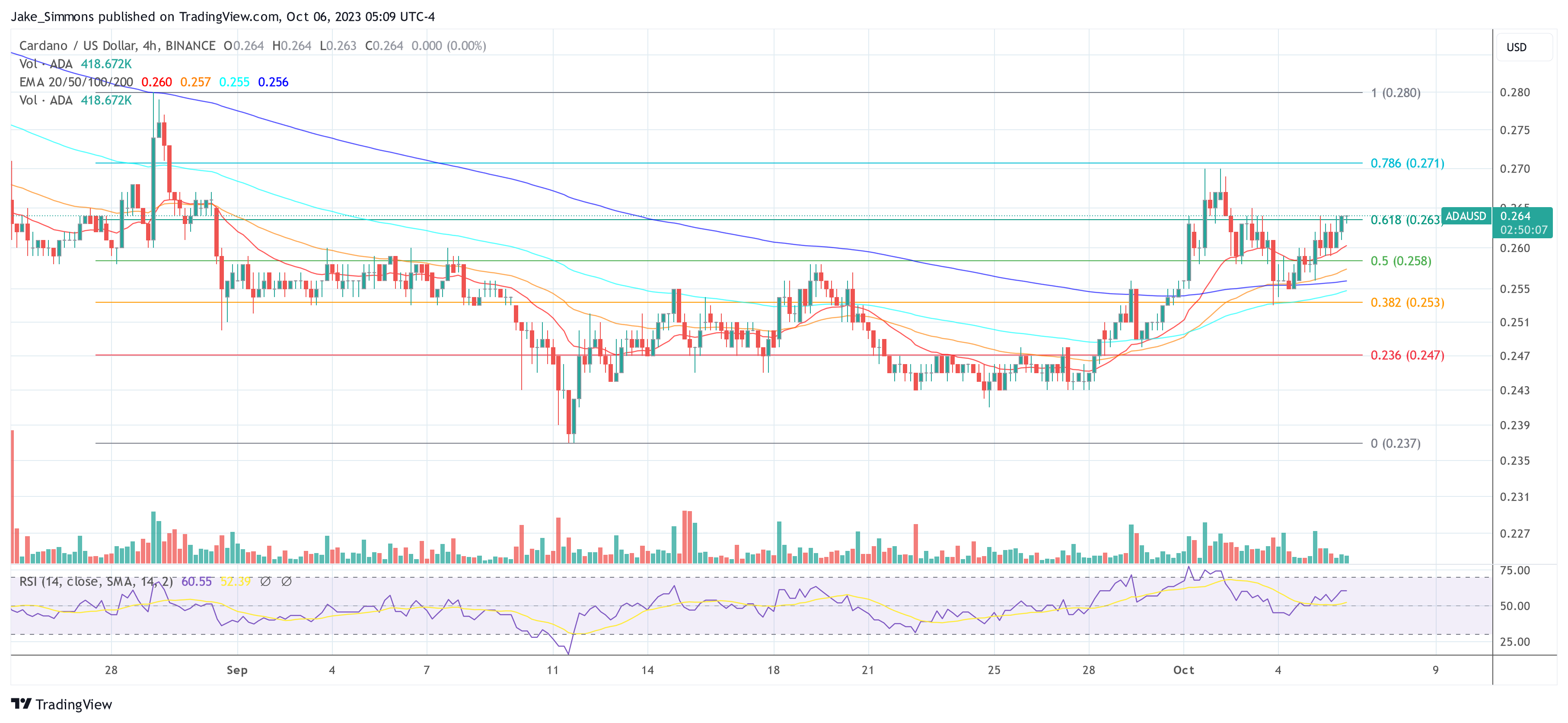Cardano founder Charles Hoskinson recently tackled rumors concerning Hydra’s scaling issues in a detailed video update. Hydra, an integral layer-2 scaling solution for the Cardano blockchain, seeks to ramp up the transaction processing ability of the network. It accomplishes this by permitting the opening of multiple heads or channels, facilitating off-chain transactions between participants.
Cardano Founder Dispels Hydra Rumors
Using data from eutxo.com as a reference, Hoskinson demonstrated how Cardano’s transactions are inherently different from many other blockchains. A single transaction can encompass multiple outputs; in one instance reviewed by Hoskinson, a block contained 384 outputs in just one transaction.
To provide clarity, he elaborated:
Cardano is not a TPS system. It’s a transaction-per-transaction system, and each of these outputs can signify more intricate elements such as scripts and proofs, beyond mere raw value transfers.
Hoskinson emphasized that Cardano’s strength doesn’t lie in the traditional transactions-per-second (TPS) metric, but rather in its capacity to handle sophisticated transactions. He clarified: “The metric of 1,000 TPS, when taken out of context, can be misleading. For certain applications like video games or tipping systems, this might be relevant. But Cardano’s primary operations involve significant NFT drops, DEX transactions, oracle transactions, DJED transactions, and complex smart contracts, and more.”
This notion challenges the widespread focus on high TPS as the gold standard of blockchain efficiency. He went on to assert, “Yes, you can achieve high TPS, but it’s a metric that doesn’t capture the real essence of what Cardano offers.” Hoskinson outlined that Hydra has evolved over the last three years, shifting its focus to middleware development, ensuring seamless integration with Plutus for application developers.
He stated, “This approach aims to delegate intricate logic handling off the mainnet, onto a different network tailored for batching, voting, and event-driven programming. […] Hydra’s evolution is driven by real-world application needs, focusing on reducing the mainnet’s load.”
Expatiating on the theme of TPS, Hoskinson endeavored to debunk some of the prevailing misconceptions. He explained that “Hydra is evolving. […] What this does is, it lowers the overall load that is happening on the mainnet. But this is the intent. […] High TPS is not how these systems work in practice. Yes, you can absolutely achieve high TPS, but it is a pointless metric, it means nothing.”
Hoskinson Lashes Out Against Solana
The Cardano founder didn’t shy away from making comparisons. Pointing to Solana, he highlighted the ramifications of an overly centralized on-chain methodology: “Solana is over 200 Terabytes in size. It is approaching a petabyte if it continues to go down this path. Because everything is on-chain.”
But the heart of Hoskinson’s message lay in addressing misinformation. He urged the Cardano community to be discerning, stating, “Every time a lie is said, it takes 10 times as much effort to undo that in people’s memory… it’s not okay and it has to stop.”
Rounding off, he reinforced Cardano’s foundational principles—its dedication to rigorous research, unwavering commitment to peer-reviewed foundations, and a global tapestry of contributors, ensuring that Cardano continues to carve a pioneering path in the blockchain milieu.
At press time, ADA traded at $0.264.
